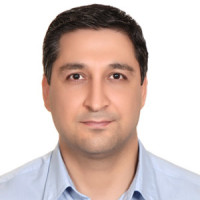
Hamid Arazi
Summary
Hamid Arazi, Ph.D. is professor at the Ferdowsi University of Mashhad (previously at the University of Guilan) in Iran. He is specialized in resistance training, nutritional supplements and muscle-organ cross talk. He received a Ph.D degree in exercise physiology, from University of Guilan (Faculty of Sport Sciences), Iran. His research interests involve athlete conditioning, health promotion and strength sports. He has published as author or co-author numerous papers in scope of exercise physiology and sports medicine (athlete performance, ergogenic supplements and health).
Anatomy & Physiology Anthropology Clinical Trials Kinesiology